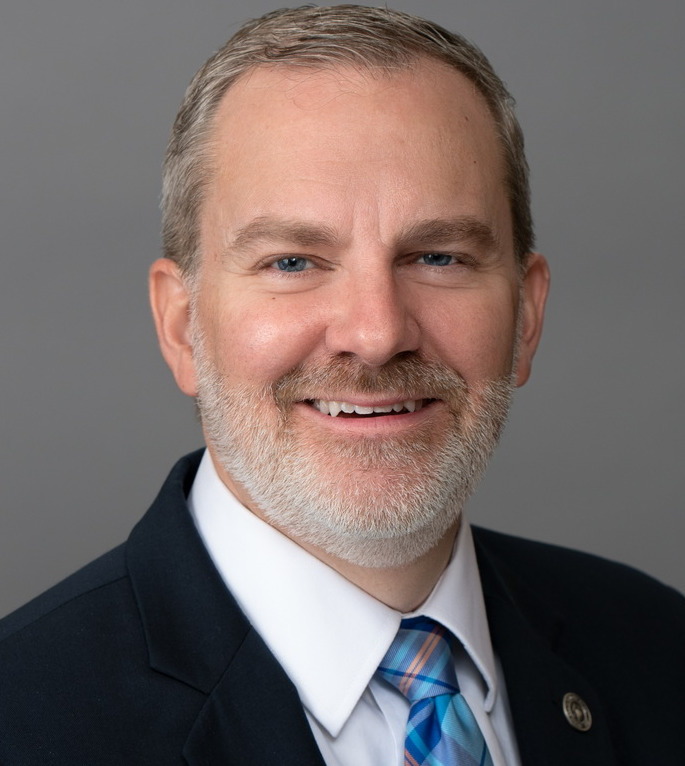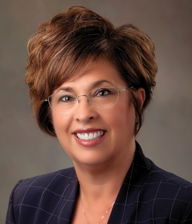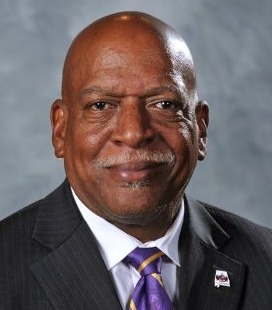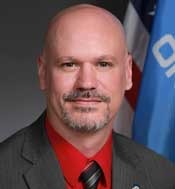Come July 1, school districts in Florida could authorize volunteer chaplains — those who are religious or not and with no training — to provide support and services for students in public schools, though GOP-controlled legislatures across the country are rejecting similar proposals.
Last year, Texas passed a first-of-its-kind law authorizing schools to pay for religious figures to work in mental health roles, and lawmakers in 15 states followed suit by pitching similar legislation.
Since then, Florida is the only state where the legislature passed the measure and Gov. Ron DeSantis signed the bill (HB 931), though Louisiana, Oklahoma and Ohio could still pass their versions this year.
The proposals from lawmakers to bring chaplains into public schools have varied, with states taking different paths regarding the requirements for people to serve as school chaplains and their purpose.
The school chaplain measures have fallen short this year in Alabama, Nebraska, Georgia, Indiana, Iowa, Kansas, Maryland, Mississippi, Utah, Missouri and Pennsylvania, according to a Florida Phoenix analysis of the chaplain bills.
Florida’s Legislature is controlled by Republicans, but some Democrats supported the move. So beginning July 1, public school districts can decide whether they’ll adopt a volunteer chaplain program, and parents must provide written consent before their children participate. But there is nothing in the legislation that requires the chaplains to have any specific degrees. Those requirements are up to the school districts.
There’s already controversy
HB 931 is already stirring controversy between DeSantis and the Satanic Temple. When DeSantis signed the bill in April, he said Satanists would not be eligible to become chaplains. His comments came after representatives of the Satanic Temple, which claims IRS recognition as a church, expressed the group’s intention to sign up members to become volunteer chaplains.
The Florida bill doesn’t state what religion the chaplains must practice. In fact, the volunteer chaplains don’t even have to have a religious affiliation. However, the language in the bill states that “any school district or charter school that adopts a volunteer school chaplains policy must publish the list of volunteer school chaplains, including any religious affiliation, on the school district or charter school’s website.”
How big of a splash HB 931 will make in Florida public schools is up in the air as school districts don’t have to hold a public vote on the issue, whereas Texas required its school districts to do so.
Still, Holly Hollman, general counsel to the Baptist Joint Committee for Religious Liberty, says Florida’s school leaders could also look to their Texas counterparts for how they handled the question. As of April, only one charter school in Texas had hired chaplains, according to The Texas Tribune, a partner of the States Newsroom.
“As a growing number of chaplains speak out, school districts will see that these proposals are not simple support for students but, in fact, are deeply problematic,” Hollman said in a phone interview with Florida Phoenix. “The main thing is that school districts will be thinking about what they need and how to support students, and as they look more closely, they will see that this is clearly outside of the mandate for public schools.”
Utah says no to Satanists
The threat of members of the Satanic Temple acting as chaplains in public schools was enough for Utah Republicans to turn down the proposal this year. On the final day of the GOP-controlled Utah legislative session, the state’s chaplain bill failed in a narrow 16-12 vote.

Courtesy of Utah Senate
Utah Republican Sen. Lincoln Fillmore of Salt Lake County.
During Senate floor debate, multiple GOP lawmakers who voted against the bill said it would leave the door too wide open for people to serve as chaplains, and Salt Lake County Republican Lincoln Fillmore said the body would regret approving the bill after seeing the results.
“In the current culture that exists in public schools, bringing chaplains would be more likely to make it worse than better because we wouldn’t be able to discriminate, and so any religion that wanted to be able to place a chaplain there would be able to do so,” Fillmore said in a phone interview with the Phoenix. “So as you guys are seeing in Florida, that includes the church of satan who wants to place chaplains there. We had chaplains who testify for the bill in ours and the satanic church was all in favor of it.”
Fillmore’s advice to Florida as the law goes into effect: Be careful.
“I know there’s a worry on the right. It’s a founded worry,” he said. “It’s based on experience and the actual events that schools are trying to broaden and teach and influence things beyond math, and science and history. So be very conscious about what chaplains are actually doing in schools.”
Indiana declines to employ chaplains as counselors
Even though Texas’ school chaplain law stated that they would be hired in mental health roles, the lawmakers who pitched proposals in other states were not as overt in that intention, including in Florida. During committee hearing testimony and floor debates on the bill, Republican Sen. Erin Grall, a sponsor of the bill, said a volunteer chaplain program could be viewed as an alternative to school counselors for some families.

Courtesy of Indiana Senate
Indiana Republican Sen. Stacey Donato.
But in Indiana, Republican Sen. Stacey Donato leaned into the idea of chaplains serving as counselors.
Her proposal would have allowed public schools to hire chaplains to provide secular guidance to students and school employees. Among the requirements, chaplains had to have a master’s degree in a field related to religion and two years of counseling experience.
Despite the GOP controlling both chambers of the Indiana General Assembly, Donato’s effort wasn’t successful this year.
Lawmakers removed the language allowing chaplains to work as counselors from another proposal requiring schools to grant parents’ requests for their students to leave classes to attend religious instruction, according to States Newsroom’s Indiana Capital Chronicle.
Alabama Democrats take the lead
Most Democrats across state legislatures have opposed the school chaplain bills, claiming that it would insert religion into public schools and allow unlicensed people to deal with students’ mental health problems.
Still, Rodger Smitherman, a Democrat from Birmingham, Alabama, insisted his plan to bring chaplains to public schools wasn’t an effort to replace counselors.

Courtsy of University of Montevallo
Alabama Democrat Senator Rodger Smitherman, Esq, of Birmingham.
While the legislation didn’t face any opposition in the Senate, Smitherman was on board with a House amendment on May 1 that heavily altered his bill, according to States Newsroom’s Alabama Reflector.
Originally, Smitherman’s proposal allowed schools to hire or accept chaplains as volunteers to provide support and services if they passed a background check and completed a recognized chaplain training program. Following the amendment, chaplains can only serve as volunteers to support teachers at their request, and school boards no longer have to take a vote on whether they will enact the program.
“We’re doing this work for our teachers’ safety,” Democratic Rep. TaShina Morris said during the committee hearing. “And if they need to have someone to talk to, we should allow them that access.”
However, the legislature didn’t vote on the bill by the time Sine Die came on Thursday night.
Oklahoma’s resurrected bill

Courtesy of Oklahoma House
Oklahoma Rep. Kevin West.
After four school chaplain bills didn’t even get a hearing in the Oklahoma Legislature, a Republican lawmaker decided to resurrect a discarded bill from 2023 to further the effort to bring chaplains into public schools in that state, according to States Newsroom’s Oklahoma Voice.
Moore County Rep. Kevin West’s maneuver cleared the House in a 54-37 vote, with 20 Republicans voting against it. The Senate has not voted on the bill yet, but amendments in the House strengthened requirements for volunteer or employed school chaplains, according to Oklahoma Voice.
The bill states that school chaplains can’t attempt to convert anyone to their religion and must get an endorsement from their faith group. Additionally, they must hold a bachelor’s and graduate degree in theology or religious studies.
***
Jackie Llanos is a reporter with States Newsroom’s Florida Phoenix. She covers politics and policy in Florida.
Florida Phoenix is part of States Newsroom, a nonprofit news network supported by grants and a coalition of donors as a 501c(3) public charity. Florida Phoenix maintains editorial independence.



























